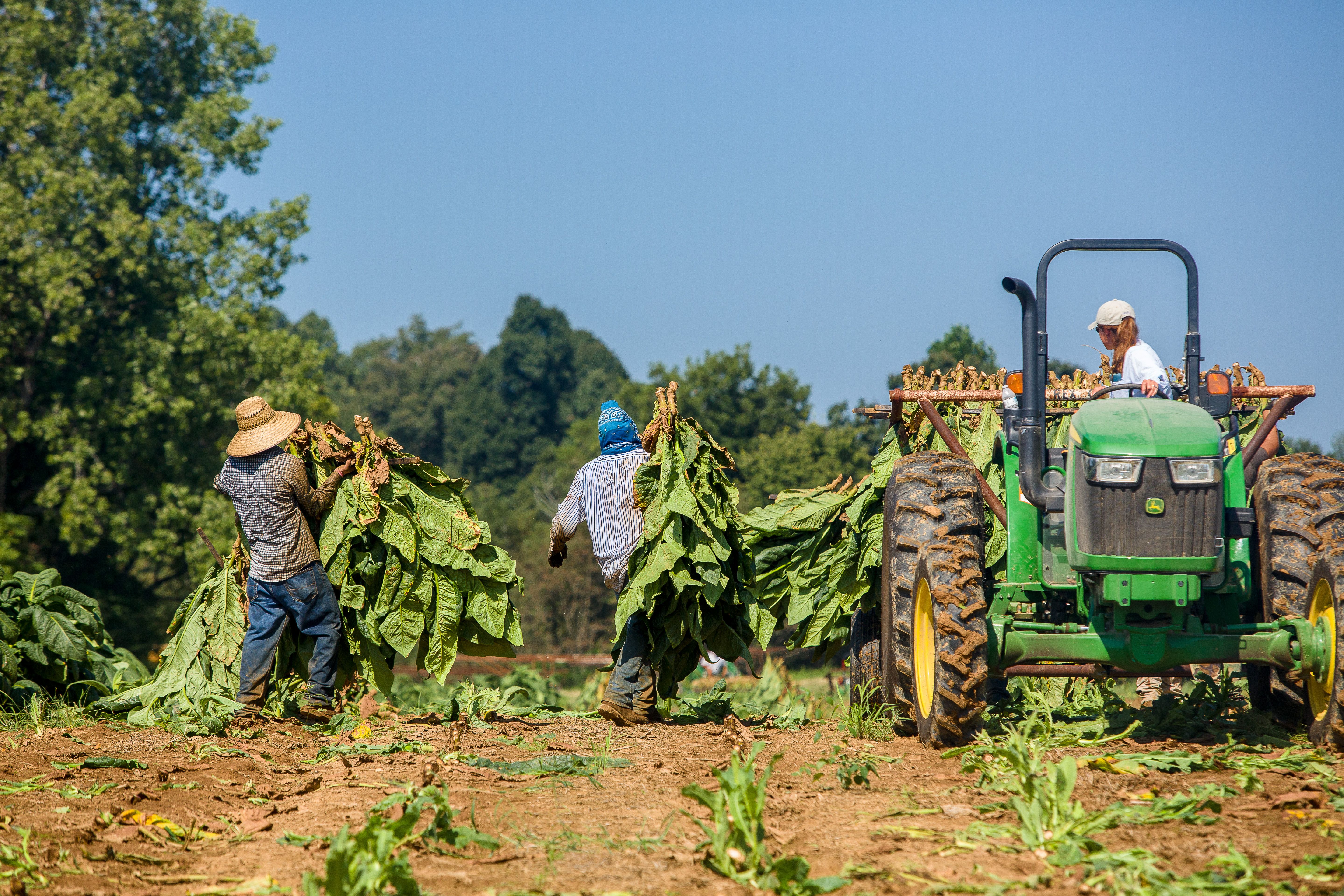Extension offers information for H-2A workers to keep agriculture operations safe, healthy and running during pandemic
Extension offers information for H-2A workers to keep agriculture operations safe, healthy and running during pandemic

Para ver el lanzamiento en español, haga clic aquí.
It’s springtime, and Suzanne White of Cecil Farms in Daviess County has nearly 400 acres of commercial watermelons to plant, along with additional produce for her farm’s community supported agriculture program and local distributors, tobacco and grain crops, a custom lime operation to run and an event venue to manage. She and her dad Gary Cecil and brother Ryan Cecil use H-2A temporary agriculture workers to help their family farm succeed.
“Employing H-2A workers is the only way we can operate on this scale,” White said. “There is no way we could get enough local help to do what has to be done around here because so much of it is manual labor.”
In late March, the U.S. State Department allowed more H-2A workers’ visas to be processed without the usual in-person interview. These visas authorize the lawful admission of temporary, nonimmigrant workers into the country to perform seasonal labor. The State Department’s actions helped ensure the workers got here in time for the growing season. This is critical for many Kentucky producers, as about 780 of them employed a little more than 8,300 H-2A workers in 2019, according to the Office of Foreign Labor Certification. As these employees began returning to the state, the health and safety of all agricultural workers is at the forefront of Kentucky agricultural operations. Producers know that if even one person in their operation contracts the virus, it could shutter their entire enterprise for at least two weeks.
The University of Kentucky Cooperative Extension Service is helping producers safely welcome H-2A workers back to their farms. Agriculture and natural resources extension agents like Daviess County’s Clint Hardy and Beau Neal in Fayette County have sent guidelines to producers in their counties who have H-2A employees to help them continue to operate safely and efficiently as they work to feed America during the pandemic.
“We compiled these guidelines and recommendations as a result of questions many of our producers were asking our agents about the status of H-2A workers and their responsibilities,” said Craig Wood, interim assistant director of UK’s agriculture and natural resources extension program.
The extension materials are available in English and Spanish to help bridge language barriers between producers and workers.
“The packets included COVID-19 information and guidance, best health practices and producer guidelines all translated into Spanish,” Neal said. “I also included some guidelines for the employers to maintain a healthy workplace environment for all H-2A employees. Doing this helps those employees and their coworkers stay safe and healthy, and to be on the same page as the producer in developing a plan moving forward to adhere to proper health guidelines in their work environment.”
In addition to mailing information to producers, Hardy is directing farmers to the Good Agriculture Practices Connections website for more information on keeping everyone in their operation safe and healthy during the pandemic.
“Farmers are really concerned about the pandemic and how it could affect their workers and operations,” Hardy said. “The growers I’ve spoken with are asking their workers to quarantine for two weeks after they get here. They are working but on jobs around the farm by themselves.”
David DeMarcus, who produces tobacco, hemp and cattle in eastern Fayette County, has employed many of the same H-2A workers for the past 20 years, but he knows this year is going to be different for his operation because of the pandemic. When his first group of employees arrive in May, he plans to share the information that Neal sent to him with them. He has already spoken to them over the phone about the pandemic.
“They are aware of COVID-19, but it is not as bad where they live in Mexico,” he said. They know when they get here they will have to be more diligent about washing their hands and keeping at least 6 feet apart.”
White’s first group of workers arrived March 1, so they were already on the farm as the pandemic spread across the United States. They are adjusting to the new normal that includes social distancing.
“We have asked them to limit their grocery trips and only send a few people to town rather than everyone going,” White said. “Most of them, who have been coming here for many years, have friends around town. Just like us, they are not visiting their friends. They have been really good about abiding by the guidelines we have given them, because they know if one of them were to get sick, it would affect our whole operation.”
She will have another group arrive in May. DeMarcus will have his second group arrive in August. As these workers arrive, White and DeMarcus and other Kentucky producers will take the necessary measures and precautions to help ensure their employees stay healthy. Extension will be there to help along the way.
UK Cooperative Extension Service is part of the UK College of Agriculture, Food and Environment. With its land-grant partner, Kentucky State University, the Kentucky Cooperative Extension Service brings the university to the people in their local communities, addressing issues of importance to all Kentuckians.
Agricultural Economics Extension Horticulture

